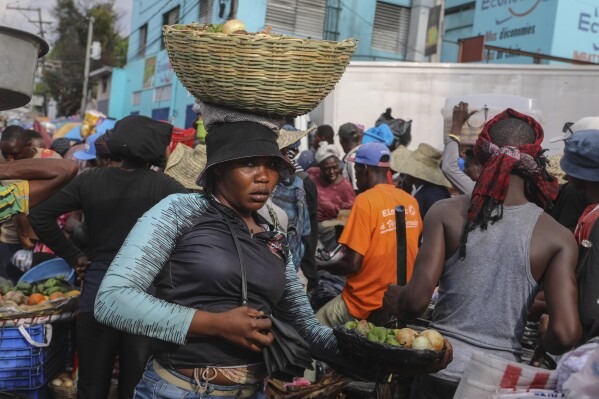A transitional council tasked with choosing Haiti’s next prime minister and Cabinet was established Friday in a move supporters hope will help quell turmoil in the troubled Caribbean country where most of the capital remains under the grip of criminal gangs.
The formation of the council, announced in a decree published Friday in a Haitian government gazette, was expected to soon trigger the resignation of Prime Minister Ariel Henry, but a new provision said he would step down when a new premier is chosen. Henry did not immediately comment.
Those awarded a seat on the council are Petit Desalin, a party led by former senator and presidential candidate Jean-Charles Moïse; EDE/RED, a party led by former Prime Minister Claude Joseph; the Montana Accord, a group of civil society leaders, political parties and others; Fanmi Lavalas, the party of former President Jean-Bertrand Aristide; the January 30 Collective, which represents parties including that of former President Michel Martelly; and the private sector.
The two non-voting seats are represented by someone from Haiti’s civil society and its religious sector.
“The establishment of the…politically inclusive council signals the possibility of a new beginning for Haiti,” a Caribbean trade bloc known as Caricom, who helped form the council, said in a statement.
It said that the council “will take the troubled country through elections to the restoration of the lapsed state institutions and constitutional government.”
“It is also clear that one of the first priorities of the newly installed Presidential Council will be to urgently address the security situation so that Haitians can go about their daily lives in a normal manner; safely access food, water and medical services; children can return to school; women can move around without fear of horrific abuses; and so that businesses can reopen,” Caricom said.
Carl-Henry Joseph, a 42-year-old street vendor, said he heard that the council was established thanks to a small radio he balances atop loaves of bread he sells out of a wheelbarrow.
“I’m not going to call it comforting news. There are still gunshots,” he said. “I don’t know if the council will be able to solve Haiti’s problems.”
But Joseph was trying to remain optimistic: “For now, that’s all we have.”
The published decree acknowledged what it called “a multidimensional crisis” that has worsened since the July 2021 assassination of President Jovenel Moïse. It said the crisis has led to a “catastrophic humanitarian situation” and that Haiti is experiencing “unprecedented institutional dysfunction, which has led to a political impasse.”
It also noted that Henry would present his resignation once a new prime minister is appointed.
The decree, which was signed by Henry and his Cabinet, noted that no one can be a member of the council if they have been sanctioned by the UN, oppose the deployment of a foreign armed force or plan to run in the next general election, among other conditions.















